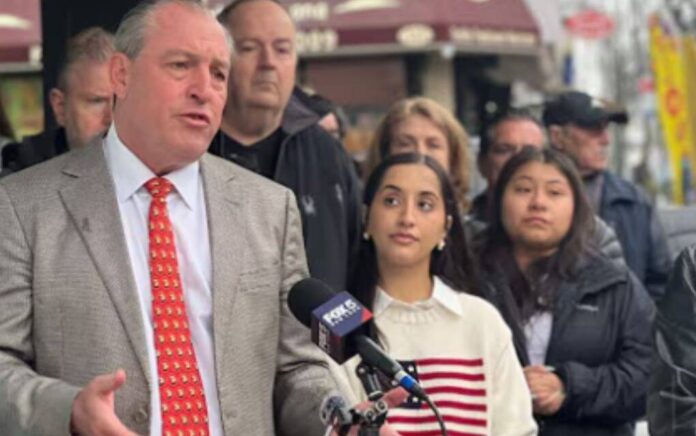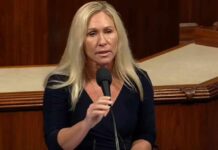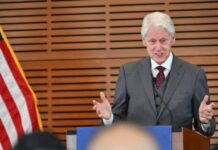
Democrats are close to allowing non-citizens to vote in upcoming elections. The country will never be the same.
And now a top appeals court has handed down a game-changing ruling on non-citizen voting.
New York Supreme Court Upholds Citizen-Only Voting, Strikes Down Noncitizen Voting Law
The New York State Court of Appeals ruled on Thursday that a New York City law permitting noncitizens to vote in local elections violates the state constitution. The ruling, backed by all but one of the court’s seven judges, affirms what many have long argued: voting is a right reserved exclusively for U.S. citizens. This outcome aligns with widespread public opinion that noncitizen voting has no place in American elections, and the court’s stance here is a clear win for that view.
The case stemmed from a lawsuit challenging a 2022 New York City law that would have allowed roughly 800,000 noncitizens—specifically lawful permanent residents or those authorized to work in the U.S.—to cast ballots in local elections. The measure, passed by the New York City Council in 2021, sparked immediate controversy and legal action, halting its implementation almost as soon as it took effect.
Leading the charge was Staten Island Borough President Vito J. Fossella, a Republican who took office in 2022, joined by fellow GOP lawmakers Sen. Andrew Lanza, Assemblyman Michael Reilly, and Assemblyman Michael Tannousis. The Republican National Committee and the state GOP Party also threw their weight behind the suit.
At the heart of the decision is Article II of New York’s state constitution, a section dating back to 1894 that outlines voter eligibility. Chief Judge Rowan Wilson, writing for the majority, pointed to the unambiguous language of this provision. “It is plain from the language and restrictions contained in Article II that ‘citizen’ is not meant as a floor, but as a condition of voter eligibility: the franchise extends only to citizens whose right to vote is established by proper proofs and who vote by ballot,” Wilson wrote.
He further noted that amendments to the constitution over the years have not altered its core meaning. “There is no evidence that any of the amendments changed the understanding that a voter must be a citizen to vote in New York,” he added.
This wasn’t the first time the law faced judicial scrutiny. A state Supreme Court judge struck it down last year, a ruling upheld by an appellate court, making Thursday’s decision the third time it’s been deemed unconstitutional. When the case reached the Court of Appeals last month, it was seen as a litmus test for the court’s impartiality, especially given that all seven judges were appointed by Democrats. Critics have occasionally accused the court of leaning partisan when siding with Democratic positions, but this ruling defies that narrative—a point not lost on Republican leaders.
“The decision by the Court of Appeals is a victory for every New Yorker who believes in our constitution,” said Senate Minority Leader Robert Ortt, a Republican from Niagara County. “Even the stacked Court of Appeals cannot deny the fact that the sacred right to vote is one that belongs to the American citizen only.” For Ortt and others, the ruling reinforces a principle that enjoys strong support across the country: citizenship matters when it comes to voting.
The lone dissenter, Associate Judge Jenny Rivera, argued that the state’s Election Law allows localities to expand voting rights under their home rule authority. “While the Election Law permits only United States citizens to register and vote, it expressly allows localities to exercise their home rule authority and supersede this requirement,” Rivera wrote in her lengthy dissent. Her view, however, failed to sway her colleagues, leaving the majority’s interpretation of the constitution intact.
The law’s journey to this point was fraught with tension. When the New York City Council approved it in 2021, it drew national attention and exposed divisions even among Democrats. Former Mayor Bill de Blasio, in his final days in office, declined to sign the bill, effectively passing the buck to his successor, Mayor Eric Adams. Adams, too, avoided taking a firm stance, neither signing nor vetoing it, allowing it to become law automatically. Two days later, Fossella filed the lawsuit on Staten Island, setting the stage for its ultimate demise.
Supporters of the law, like New York City Council Speaker Adrienne Adams, expressed disappointment but stopped short of challenging the court’s authority. “With Local Law 11 of 2022, the council sought to strengthen our city’s democratic process and increase civic engagement by enfranchising the hundreds of thousands of New Yorkers who pay taxes and contribute to our communities but are unable to make their voices heard in local elections,” Adams said. “The council, as always, will continue to support and protect our immigrant community members.” Despite their intentions, the court’s ruling makes clear that such efforts cannot override the state constitution.
For many Americans, the idea of noncitizens voting—even in local elections—feels like a step too far. The Court of Appeals’ decision reflects that unease, grounding itself in a straightforward reading of New York’s founding document. While the debate over immigration and community participation will no doubt continue, this ruling ensures that, for now, the right to vote in New York remains a privilege of citizenship—a position the state’s highest court has wisely upheld.
The Federalist Wire will keep you informed on any appeal to the New York Supreme Court in this case.



















